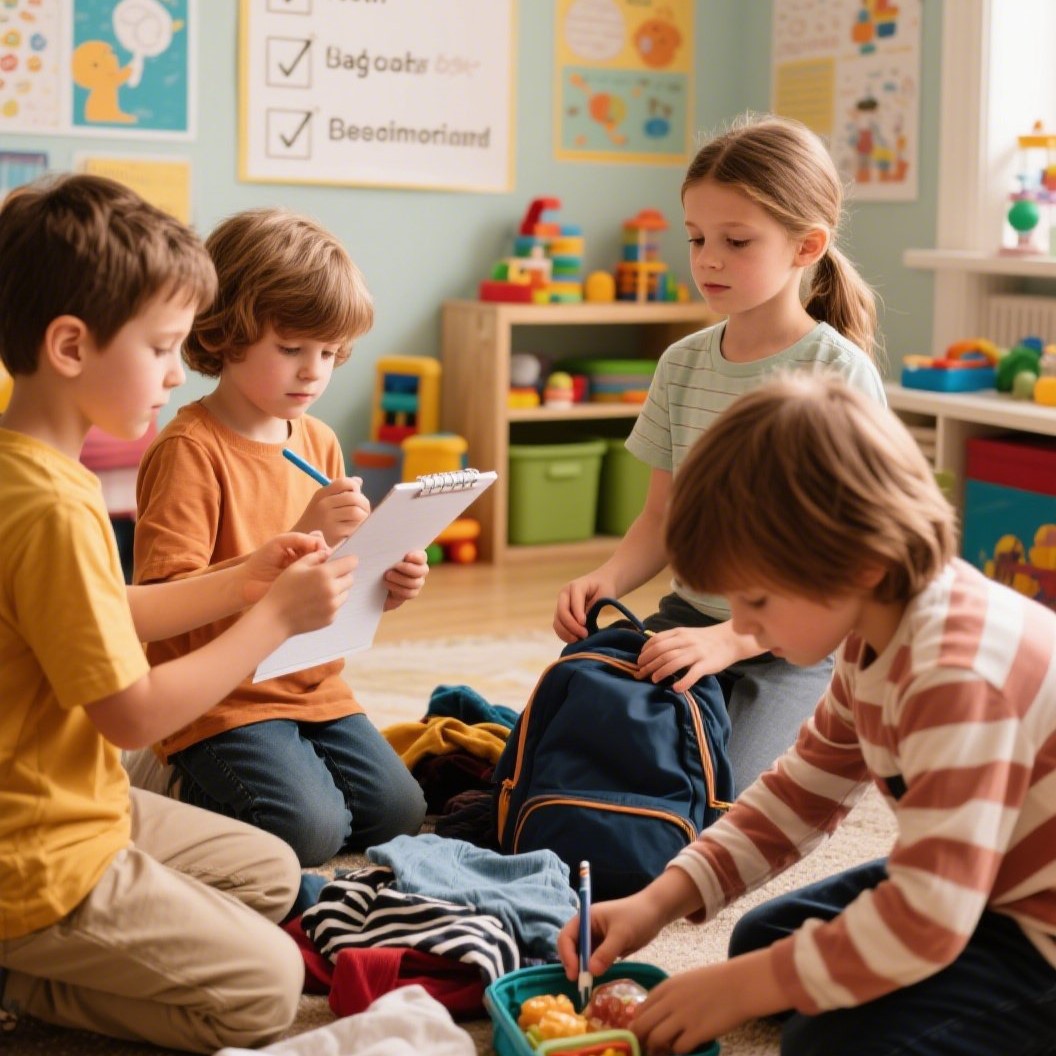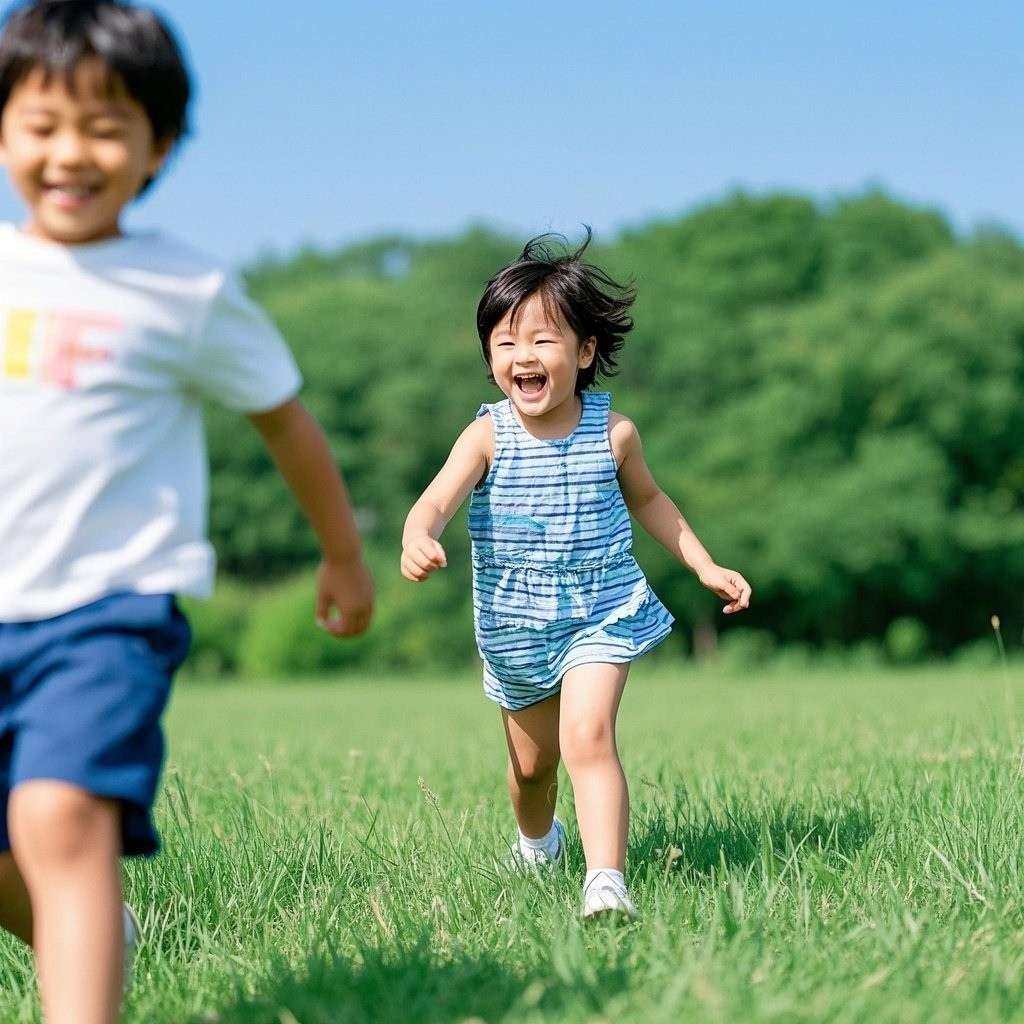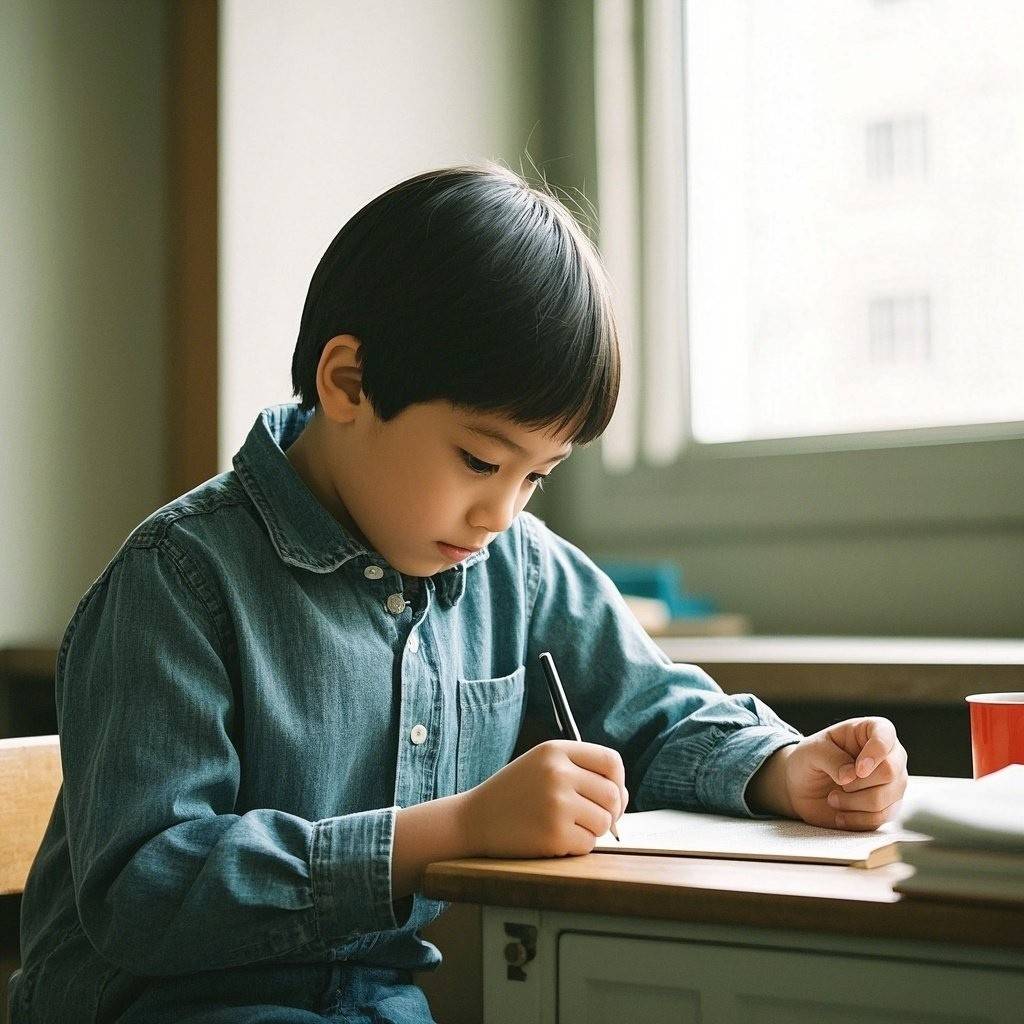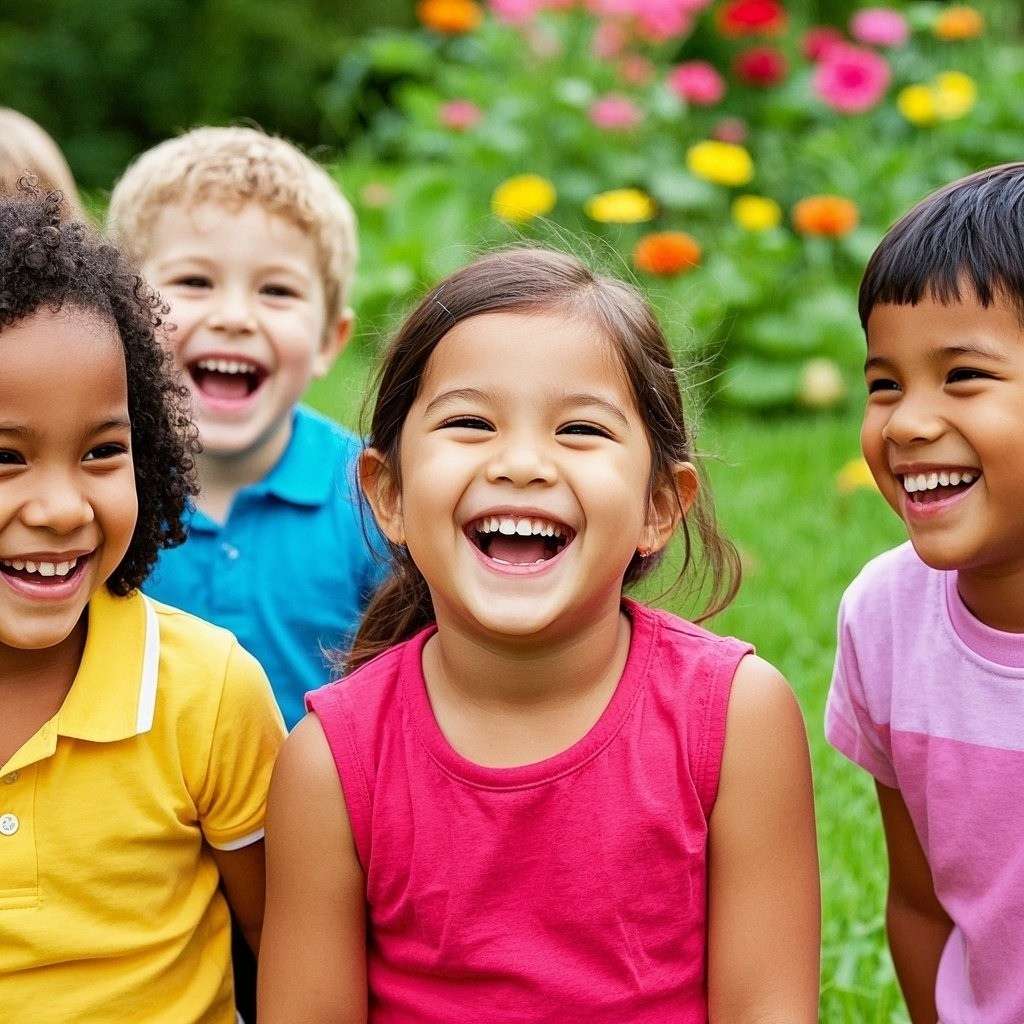Middle childhood—ages 7 to 12—is often called the “golden age of childhood.” Kids are no longer tiny toddlers, yet not quite teens. They’re curious, capable, and craving independence. It’s the perfect time to plant the seeds of responsibility—and watch them grow.
But here’s the twist: developing a strong sense of responsibility isn’t just about giving kids chores or rules. It’s about helping them understand why their actions matter, how their choices affect others, and why being dependable feels good.
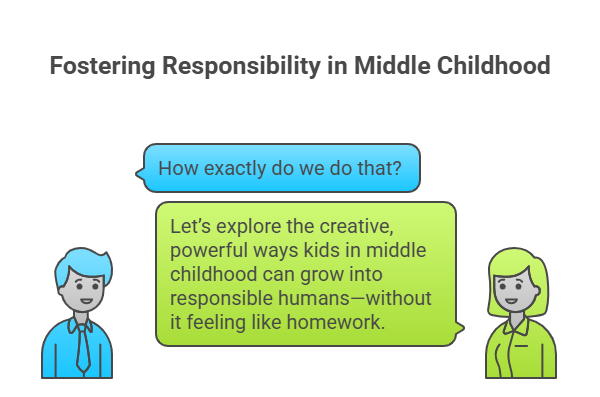
So how exactly do we do that?
Let’s explore the creative, powerful ways kids in middle childhood can grow into responsible humans—without it feeling like homework.
🌱 1. Give Them Real Responsibilities That Matter

Kids know when you’re just giving them “busy work.” Instead of just assigning tasks, invite them to contribute in meaningful ways.
- Let them plan a family game night
- Put them in charge of setting the dinner table
- Ask them to help care for a pet or younger sibling
🧠 The message is: You are needed. You make a difference.
And that builds pride—the heart of responsibility.
👓 2. Teach the “Why” Behind the Task
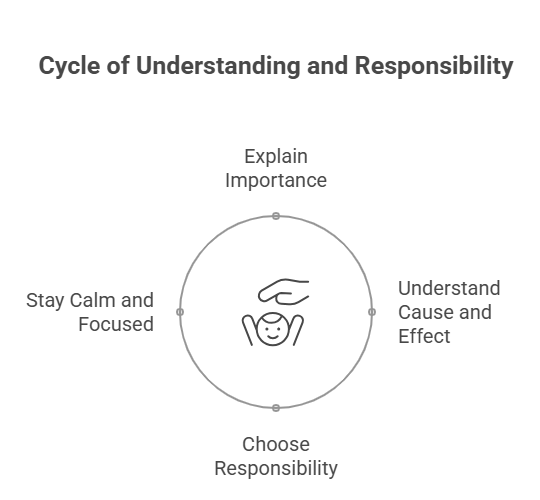
Instead of saying, “Clean your room because I said so,” try:
💬 “When you keep your things in order, it’s easier to find what you need. That helps you stay calm and focused.”
Kids this age are old enough to understand cause and effect. Explaining why something is important helps them take ownership—rather than just following rules blindly.
Responsibility becomes a choice, not a command.
🔄 3. Create Routines That Build Ownership
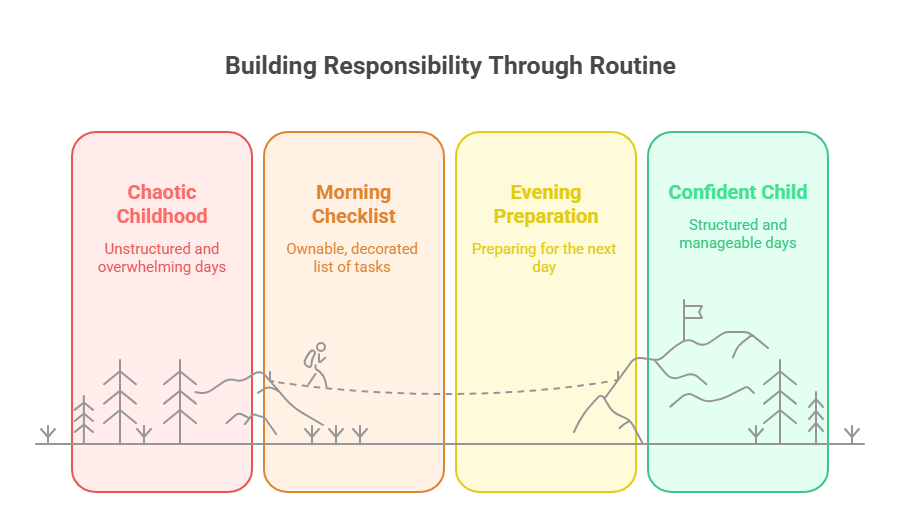
Middle childhood is all about learning structure—and routines make responsibility feel doable.
🔹 Mornings: Make a checklist they can decorate and own (wake up, brush teeth, pack bag)
🔹 Evenings: Let them help prep for the next day (lay out clothes, pack lunchbox)
Every successful day they navigate boosts confidence:
“I can handle this. I’m growing up.”
🧩 4. Let Them Solve Their Own Problems
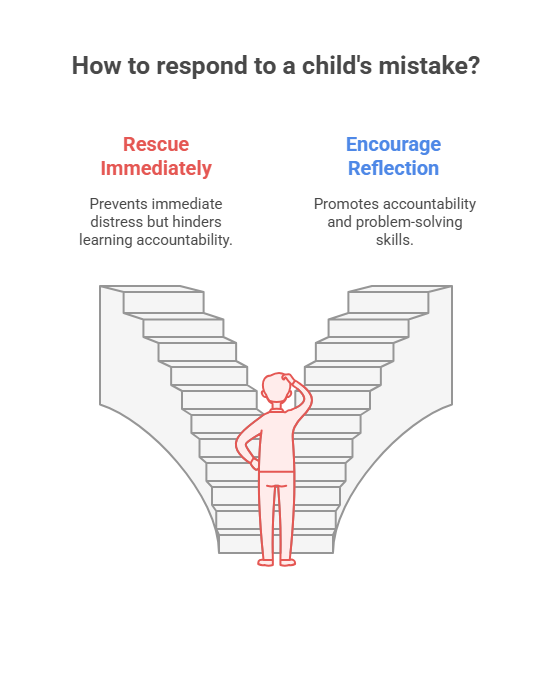
Yes, even if it’s messy.
If your child forgets their homework or breaks a toy they left outside, don’t rush in to rescue. Instead, help them reflect:
💬 “What can you do to fix this? What will you do differently next time?”
Middle childhood is the ideal time to teach accountability. It’s okay to make mistakes—what matters is what comes next.
💬 5. Model Responsibility—and Talk About It
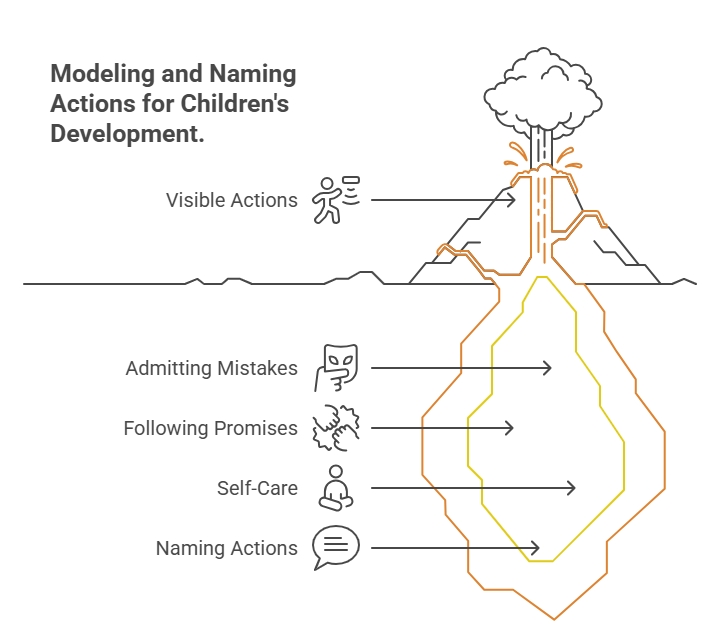
Children in this stage are watching everything. Show them how you:
- Admit mistakes
- Follow through on promises
- Take care of your space, your schedule, and your relationships
But don’t just model it—name it.
📌 “I’m tired, but I said I’d help Grandma today. Being responsible means showing up even when it’s hard.”
That turns your actions into teachable moments.
🎉 6. Celebrate Effort, Not Just Results
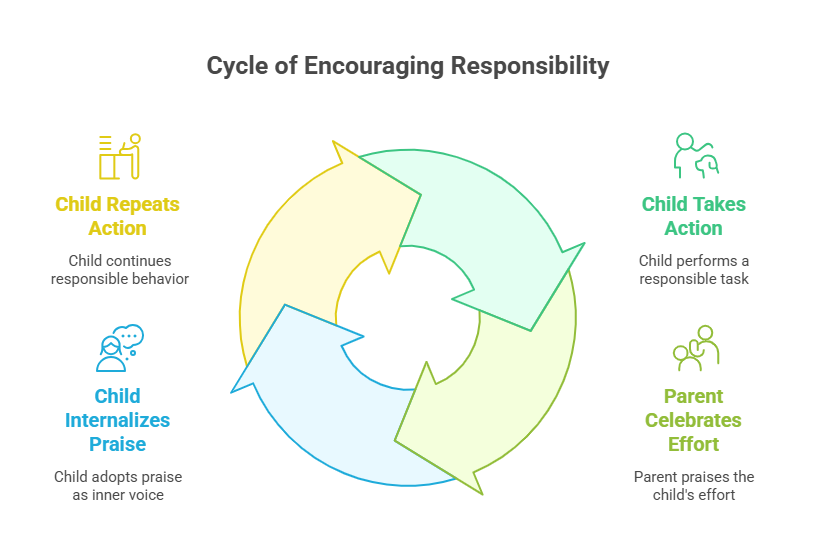
Responsibility isn’t about being perfect—it’s about showing up and trying.
Did your child remember to walk the dog all week? Finish their homework without reminders? Offer to help a friend?
👏 Celebrate it! Praise progress:
“I love how dependable you were this week.”
“You handled that like such a responsible person.”
This kind of encouragement becomes their inner voice over time.
💡 Final Thoughts: Responsibility Is a Superpower
When children in middle childhood learn responsibility, they’re not just learning how to do things—they’re learning how to be someone others can trust. They discover their own power, purpose, and place in the world.
Responsibility isn’t a burden. It’s a badge of growing up—and when taught with warmth, respect, and consistency, it becomes a superpower they’ll carry for life.

